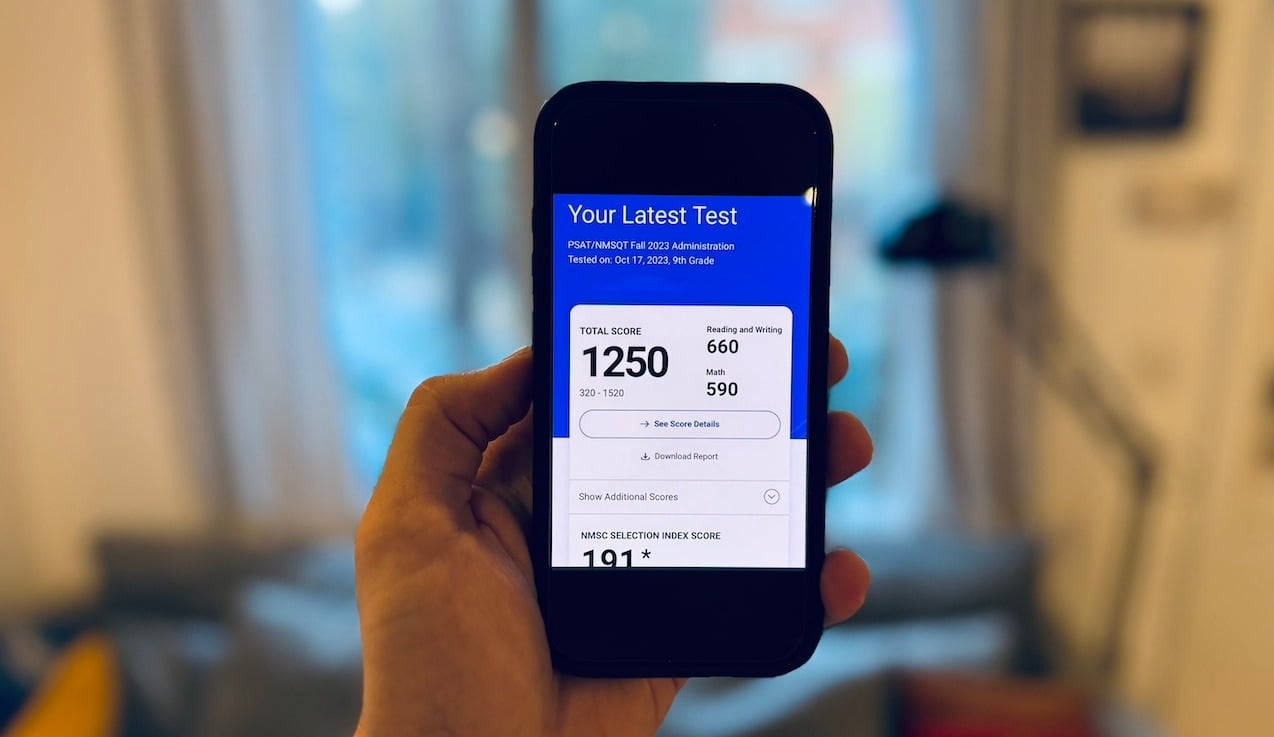A few weeks ago during a very busy travel week for work, I watched the new documentary about the SAT and ACT, The Test & the Art of Thinking. If I didn't have three kids missing their working mom, I would have hopped on a train to New York City to see the premiere last Friday night. But as I daydreamed about attending a movie premiere, I was reminded of something far more familiar to me. I was haunted by how much value we put on these tests when I worked in the admissions office of an Ivy League university.
I used to give the same canned speech that my boss gave to prospective families and college counselors. Test scores are just one piece of the puzzle, I would say.
What I didn't say was that the first thing I saw when I opened up an application to read or make an admissions decision on, was the student's test scores. It dictated how much time we would spend on that application and the likelihood of admission.
No matter how good the student's grades were, how much of a trailblazer I thought they could be, how moving their essays were, nothing could "make up" for low test scores unless they were lucky enough to fall into a rare category of students that the institution wanted for political reasons.
I had a hard time resolving this in my mind. I didn't go to a fancy high school. My parents couldn't afford an expensive tutor. I didn't have good test scores. I spent years thinking I wasn't good enough to succeed in college, let alone a truly elite college. Yet there I was, basing a student's worth on a test knowing full well that scores did not predict academic success in college. If it did, I never would have graduated at the top of my college class.
"The fact is, test scores don't predict future academic success—but the College Board would lead you to believe otherwise. Why? Money." TWEET THIS
The Test & the Art of Thinking exposes how the elite higher education system rests on this fallacy. The multi-billion dollar testing industry made up of the College Board (which owns the SAT) and the ACT uses kids as their pawns, parents as their fearful consumers, and colleges as their Ponzi-scheming beneficiaries. Former administrators of the College Board admit in the film that the goal was to trick kids. Where I come from, individuals and organizations who trick kids are cowards, not heroes or respected institutions.
Just imagine if colleges like Vanderbilt, Amherst, Georgetown, University of Pennsylvania, and University of Florida decided to drop their SAT/ACT requirement. They would probably lose their spot on the Board of Trustees for the College Board, that's for sure. They would be forced to spend more time on an application, more time getting to know a student, and more time admitting real kids instead of test scores. Their bond rating might decrease. Their coveted spots on the US News & World Report College Rankings might drop too. But, gosh, I'd take that over being a coward any day.
Just imagine if Michigan, Connecticut, Colorado, Delaware, and a growing number of states backed out of their new policies to require every high school student to take the SAT or ACT. Each state would save tens of millions of dollars that they pay the College Board and the ACT every year to supply these tests. Teachers wouldn't have to teach to a test that has no predictive value. Students would have more time in their day when they wouldn't have to prepare for a test and could spend more time on activities, schoolwork, and relationships that mean something. Parents could save thousands of dollars that they could put towards college tuition instead of spending their money on test registration fees, score reports, test prep classes, and tutors.
It seems too difficult to change, right? How can we expect to topple this testing giant?
Richard Atkinson, the former president of the University of California system tried to change things back in 2001 when he proposed dropping these tests from the admissions requirements. Current and former deans of admission like William Hiss from Bates College and Martha Allman from Wake Forest led their institutions to adopt test optional policies. Robert Schaeffer from FairTest.org is a longstanding advocate for test optional policies. The producers of this film provide a platform for the voices that don't get heard—the kids who lack confidence for many years to come because of their scores. These are the trailblazers we should be applauding. These are the real heroes.
Halfway through the film, there is a quick shot of a student stretching to touch the bronze foot of a statue of Thomas Jefferson. The statue sits in front of the elite steps of Columbia University. While fleeting, it's a poignant moment in the film. It serves as a statement that our kids look to these institutions as Ivory Towers of opportunity and integrity—everything our country was founded upon. When we forget that, we get blinded by our own ambition.
In the end, the heroes of this film aren't the College Board president, the dean of admission at Harvard, or the test prep tutors—all of whom were prominently featured. They are those individuals in our past, present, and future who will stand up for our kids even when they receive no personal gain. The history books don't lie, and neither should our educational leaders.
Time has come to challenge the monoliths and monopolies. The fixes are in. The order is seemingly set. But, the future is yet to be written. Time has come to embrace the real achievers and eschew the preordained mechanism of this flawed system. It is time to look harder, think deeper and choose better. Our future generations demand this and it is upon us now to make a change.








.jpg)



